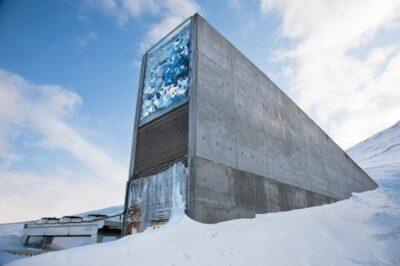The “doomsday seed vault” has had its first withdrawal.
The Global Seed Vault, located on the Norwegian island of Svalbard – 800 miles from the North Pole – will lose thousands of seeds due to the Syrian civil war. The reason: another seed vault, this one in Aleppo, Syria, had to be abandoned in 2012, and scientists in that region now need more seeds.
“We hoped that we would never get such a request,” Asmund Asdal, who runs the vault in Norway, told NBC News. “Ideally, all the world’s seed gene banks would function normally but of course we are prepared for this. We are of course very sad and frustrated at the situation in Aleppo but at the same time it shows that having a backup facility is important and it works.”
The Global Seed Vault is the largest of its kind and sort of a “Noah’s Ark” for seeds, protecting the world’s food supply in case of a worldwide disaster that threatens the food supply. It’s built into rock and rests in permafrost, and the seeds could survive for 200 years if there were a power failure. It has more than 800,000 seeds.
Store Your Own ‘Doomsday Seed Vault’! Read How Here [2]
But it’s not the only seed vault. There are about a dozen seed vaults around the world, including the one in Syria, which is run by the Syrian-based International Center for Agricultural Research in the Dry Areas (ICARDA).
“We just don’t know what’s going to happen [in Syria],” Brian Lainoff of the Crop Trust, which helps run the Global Seed Vault, told CNN. “Any day that facility could be hit,” he said.
The Syrian seed bank houses more than 135,000 varieties of wheat and other crops, faba bean, barley, lentil and chickpea crops, Lainoff said.
ICARDA requested 16,500 of its seed samples. They will be reproduced, and then hopefully placed back in the doomsday vault.
“These seeds are very valuable to the world,” ICARDA’s director-general, Mahmoud Solh, told NBC News. “It is an important source for breeding programs, particularly for crops that have drought immunity or are resistant to the hotter temperatures we are getting.”
What do you think about the first-ever withdrawal? Share your thoughts in the section below:
Clean Water Is Becoming More Rare Than Oil. Read More Here. [3]
